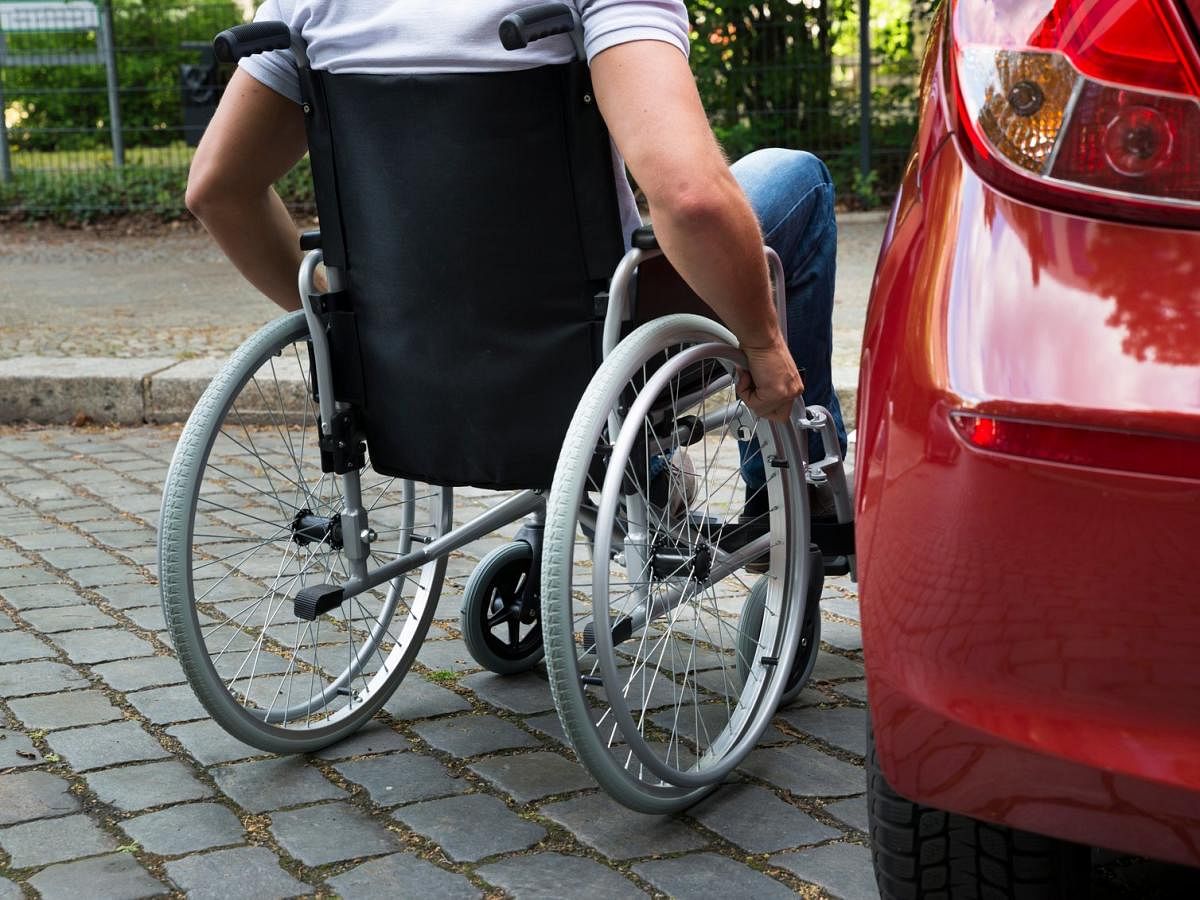July 2, 2018, was an inflection point in my life. It changed many things for me and the way I felt about my disability.
This was the first day that I entered National Law School of India University (NLSIU), Bengaluru — the first 100% visually impaired student in its glorious history of 31 years. Venkat Rao, the former vice-chancellor of NLSIU, greeted our batch saying that our journey from the university to the universe had begun.
It was truly a transition from the four walls of the house where my limitations had always been remedied by the tender care of my parents to the universe where my inability to see was to turn into a disability due to various institutional barriers.
It is a learning experience for me and the administration. I am learning to deal with these barriers with time and they are learning to remove these barriers. There has been some progress made but that is certainly not enough.
They have set up a special room for the visually impaired persons in the library. They have also procured assistive technology. They have also made attempts to promote awareness and sensitivity in the sphere of disability and the limitations it entails.
Although when I came here the institution was not prepared to accommodate the requirements of a 100% visually impaired student, yet, I won’t blame them outright for their ignorance. For, there was no one with a disability like that of mine, who came here in the past three decades.
But even when I give them a benefit of doubt, the normative question I would still ask is, can institutions deny their legal and constitutional duties of providing reasonable accommodation and building a “Sugamya Bharat” just because there are not many persons with disabilities coming to join these institutions as students, teachers, employees and workers?
Another question I would still ask is that can I and people like me be ignored only because we aren’t “many in numbers”?
Out of our batch of 80-85, four seats are reserved for persons with disabilities. These reservations extend to all the 23 national law universities (NLUs) due to the existence of Rights of Persons with Disability Act, 2016 which provides for the same.
But an underlining observation here is that this Act does not stop at reservations. It further goes on to talk about reasonable accommodation, accessible buildings and inclusive education.
“Reservation in educational institutions” is not the only operative phrase. Reasonable accommodation is also an operative, and even more so non-negotiable phrase in this act. For, reservations are redundant without reasonable accommodation.
The NLUs have definitely initiated the process of becoming more disabled-friendly but still, there is a long way to go. Many NLUs including the NLSIU have not conducted any disability audit and nor do they have a disability policy.
Lack of accessible reading material, inaccessible infrastructure, insensitivity and non-cooperation on the part of faculty and administration have become a part and parcel of the lives of many budding lawyers with disability.
The need of the hour is for all the NLUs to take a proactive step in developing equal opportunity policies, conducting disability audits, sensitising staff and students, making extensive use of assistive technology to enhance the learning experience of the students with disabilities and working towards making the courses more accommodative.
The larger lessons that all the NLUs and all the higher education institutions in India need to learn is that they need to be reasonably accommodative. Disability does not make anyone incompetent to study, whereas the ablist people and surroundings do.
Nearly 45% of India’s disabled are illiterate. The remaining 55% are struggling to pursue their education in not-so-inclusive educational institutions. Data shows that not even 1% of the higher education institutions in our country are disabled-friendly.
Increasing number
Out of the 2.68 crore people with disabilities, nearly 50% are below the age of 25. However, in the legal landscape, the number of persons with disabilities is increasing.
In this scenario, we need to materialise the promise of an “accessible India” because wasting human capital just because those humans are differently-abled is neither logical nor constitutional.
I strongly argue for a complete halt to the ablest act of invisibilising the disabled. Whether our disability is visible or not, our demands ought to be acknowledged and fulfilled.
The law schools in our country are bastions of equality and justice. Madhav Menon founded the first and the oldest law school of the nation to revolutionise the legal system. I believe that this revolution ought to begin from within.
All that I can hope is that the Sugamya Bharat Abhiyaan reaches the Harvard of the East soon. All that I can hope is that the line of distinction between the Harvard of the East and West demystifies soon.
